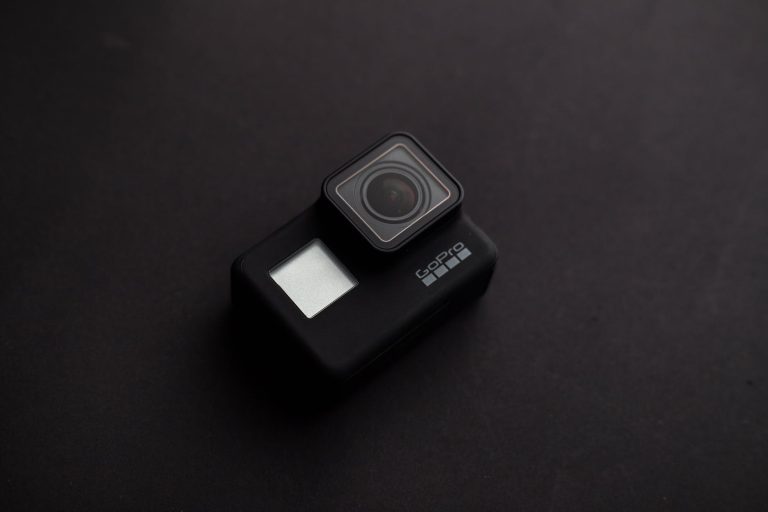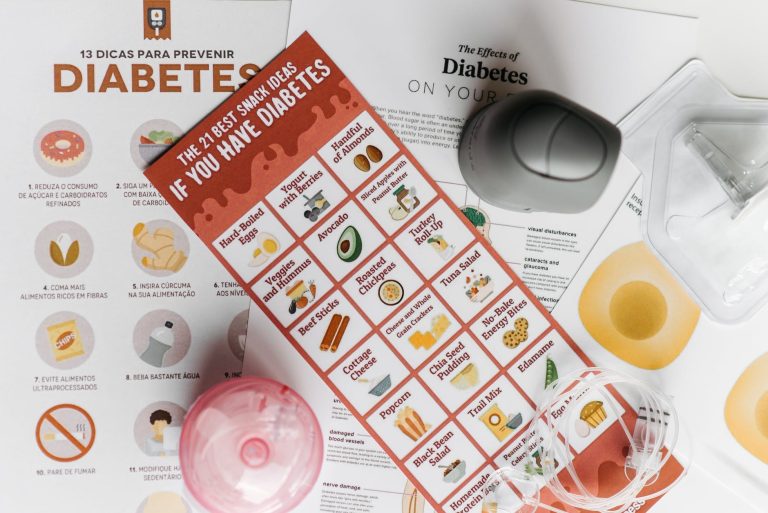Senseonics (SENS) is a medical device company that manufactures patented implantable continuous glucose monitoring devices. This device is surgically placed underneath the skin and is the world’s first and only long-term continuous glucose monitoring system.
It has the ability to provide real time feedback of blood glucose levels with the sensor that is subcutaneously implanted into the upper arm region. The sensor will then send that information to an adhesive transmitter that is placed anterior to the patient’s implanted sensor. Shortly after blood glucose data is delivered, the transmitter will send important information regarding blood glucose levels to the patient’s mobile device and will also provide vibratory on body alerts if the patient does not have the mobile device nearby.
The mobile application that comes with this device is able to receive real time glucose measurements so there is no need for a separate receiver that other products in the market require. Patients can share data with friends, family, and even their Health Care providers. Senseonics aims to disrupt the CGM market in partnership with Ascensia Diabetes Care, one of the top diabetes companies in the world.
Leadership In Senseonics
I will start off my DD with Senseonics executive team. Firstly, we have the CEO and President Tim Goodman, PhD. Tim earned his PhD and Bachelors of Science degree in Chemistry at the University of Miami. Goodman joined the Senseonics Board of Directors in December 2010. He was named president and CEO in March 2011. He has become instrumental in commercializing the worlds first implantable 90-day Eversense CGM (continuous glucose monitoring) system in Europe as well as the 180-day CGM (Eversense XL); which is already being distributed in over 15 countries.
It should be noted that he also successfully launched the 90 day system in the US only 40 days after FDA approval. Prior to joining the Senseonics team he was the Vice President of Technical Operations at Abbot Diabetes Care. He has also held several executive positions over at Therasense, Verax Biomedical, Dade Behring, and Baxtor Healthcare.
Next up we have Mukal Jain, PhD. Jain earned his MBA from Calrson School of Management at the University of Minnesota, a PhD in Chemical Engineering from the University of South Carolina and a B.Tech. from Indian Institute of Technology in Kanpur. Prior to joining the executive board for Senseonics; Jain spent 13 years at Medtronic devices in CRDM and Neuromodulation space. Kain was responsible for managing the development of Neurostimulator Systems in Spinal cord stimulation and sacral nerve stimulation.
Prior to that, he worked at Medtronic Energy and Components developing various critical components used across Medtronic’s implantable devices. Fast forward to 2023, Kain is now part of the Executive team for Senseonics as the Chief Operating Officer. He is responsible for overseeing quality, regulatory, Product Development, and global operations which include manufacturing and supply chain.
Furthermore we have Nick Tressler, MBA. Nick brings over 20 years of experience, strategic financial leadership and operational business partnering in the life sciences, biopharmacuetical and technology sectors. Nick previously was Vice President, Financial Planning and Analysis at Sucampo Pharmaceuticals. Prior to joining Sucampo, Nick was a Site Controller at AstraZeneca PLC, a public global biopharmaceutical company. Previously, Nick held various financial leadership roles at MedImmune LLC a biopharmaceutical company which was acquired by AstraZeneca in 2007 for $15.6 billion. Prior to MedImmune, Nick held finance roles at Corvis Corporation, an optical networking equipment maker that raised more than $1 billion in its Initial Public Offering (IPO) in 2000 and Honeywell International, a Fortune 500 company that produces commercial and consumer products, engineering services and aerospace systems. Nick also holds a MBA from the Johns Hopkins University and a BS in Finance from the University of Maryland.
Next we have Francine R. Kaufman, M.D. Dr. Francine R. Kaufman is the Chief Medical Officer at Senseonics, Inc.As Chief Medical Officer, Dr. Kaufman is dedicated to helping drive the innovation platform and the clinical value proposition of the Eversense CGM system. As one of the world’s leading endocrinologists, she brings a deep understanding of the global medical, research, and clinical diabetes community.
Her track record of applying novel technologies to advance diabetes care for patients make her ideally suited for her role.Dr. Kaufman’s career spans almost 40 years in diabetes care. She is a dedicated pediatric endocrinologist and has served as director of the Comprehensive Childhood Diabetes Center, and head of the Center for Endocrinology, Diabetes and Metabolism at Children’s Hospital Los Angeles. Dr. Kaufman is also a Distinguished Professor Emerita of Pediatrics and Communications at the Keck School of Medicine and the Annenberg School of Communications of the University of Southern California.
She was formerly the president of the American Diabetes Association, chair of the National Diabetes Education Program and elected to the National Academy of Medicine. She is the author of over 250 scientific manuscripts and numerous books, including Diabesity: The Obesity-Diabetes Epidemic That Threatens America and the ADA’s Insulin Pumps and Continuous Glucose Monitoring: A User’s Guide to Effective Diabetes Management. Dr. Kaufman is an active philanthropist working with numerous organizations and charities around the world aimed at improving the lives of people with diabetes. She was also an advisor to the Governor on the California Initiative on Health, Fitness and Obesity. Most recently Dr. Kaufman served as Chief Medical Officer and Vice President of Global Clinical, Regulatory and Medical Affairs at Medtronic Diabetes.
Now we have Abhi Chavan, PhD. Abhi Chavan is the Vice President of Engineering, Research and Development at Senseonics, Inc. Abhi brings more than 30 years of experience in research, development & engineering. At Senseonics, he is responsible for the next generation of implantable continuous glucose monitoring products for users worldwide and has been instrumental in the CGM system development and creating the IoT based infrastructure for the first implantable CGM worldwide. Prior to Senseonics, Abhi held several leadership roles at Medtronic Diagnostics, including Senior Director of R&D and Vice President of Research, Product Development and Manufacturing Operations for Corventis.
While working on Corventis, Abhi guided development of wearable, mobile cardiac health products. He also spent several years at Boston Scientific in Research & Product Development, managing projects related to the design of Class III implanted Cardiac Rhythm Management devices. And prior, he held various management and engineering positions with General Motors and Delphi Electronics, as well as software and design engineering positions at Siemens A.G. and Coherent Research Inc. Abhi has published widely in the field of medical devices, automotive systems, circuits and sensors, and has over 50 worldwide patents issued. He is a Senior member of the IEEE and EMBS. Abhi earned his Masters in Electrical Engineering from Syracuse University, NY, a PhD in Electrical Engineering from University of Michigan, Ann Arbor and holds his Bachelor of Science in Electrical Engineering from Maharaja Sayajirao University, Baroda-India.
Next up is Katherine Tweden, PhD. Katherine S. Tweden, PhD is the Vice President, Clinical Sciences at Senseonics, Inc. Katherine has more than 25 years in research, clinical and regulatory affairs. At Senseonics, she is responsible for all clinical affairs, including conducting all U.S. and global clinical trials for existing and future CGM systems. Prior to Senseonics, Katherine guided a novel class III active implantable obesity medical device from invention through FDA approval at EnteroMedics Inc. as one of the co-inventors and founders. Since 1990, she worked in the medical device industry in research and development roles in the fields of coronary vascular disease, heart valve disease and periodontal ligament regeneration at HeartStent Corporation, St Jude Medical, Inc and W.L. Gore and Associates, respectively. Katherine has more than 60 patents and publications. Katherine received her Master of Science and PhD in biomedical engineering from Iowa State University and has post-doctorates in oral biology and surface chemistry from State University of New York at Buffalo.
And last but not least we have Mirasol Panlilio is the Vice President and General Manager of Global Commercial Operations at Senseonics, Inc. Since joining Senseonics in 2014, Mirasol has been instrumental in the inaugural global commercial launch of Eversense CGM and later, Eversense XL in more than 15 countries. She is responsible for all aspects of global commercialization, including: product launches, supply chain management, marketing and public relations, clinical training, distributor partnerships and product distribution worldwide. Prior to joining Senseonics, Mirasol served as Vice-President of Sales and Marketing for Arkal Medical (continuous glucose monitoring) and VeraLight (type 2 diabetes diagnostic). Prior to Arkal and VeraLight, she directed worldwide strategic commercialization of the FreeStyle Navigator® continuous glucose monitoring system at TheraSense/Abbott Diabetes Care. Mirasol also worked at LifeScan, a Johnson and Johnson company, where she led the marketing efforts of the company’s hospital glucose monitoring business unit, championed its first joint product venture with Inverness Medical (Selfcare), and led the sales and marketing teams for its Asia Pacific business. Additionally, she managed the development and successful commercialization of several new products, including the best-selling OneTouch® System.Mirasol earned her Bachelor of Science degree from San Jose State University in Business Administration.
As you all can see Senseonics has an immensely strong team under their belt with leaders that specialize in a plethora of different areas. They all have impeccable track records and are striving to develop and distribute a product that will revolutionize how diabetes is treated going into the future. Now that we have all that boring but essential stuff out of the way… Let us move on to the accuracy of the Eversense Technology compared to their competitors and what makes their product stand out.
Accuracy of the Eversense Technology
On June 3rd 2023, Senseonics released the PROMISE study results which evaluated the accuracy of the next generation Eversense continuous glucose monitoring system for the 180 day system with reduced calibrations. This data was presented by Satish Garg, MD, Professor of Medicine at the Barbara Davis Center of the University of Colorado, Denver, and the study group Principal Investigator (PI). The study results presented show the Overall mean absolute relative difference (MARD) against reference value was 9.1% for the primary sensor over 49,000 paired points and 8.5% for the SBA sensor over 12,000 paired points. Typically a CGM system with a MARD <10% is regarded to have good analytical performance. Confirmed hypoglycemic alert detection rate was 93% for primary sensor and 94% for the SBA sensor. There were no related serious adverse events, all sensors were removed during the initial removal procedure and 1.1% of patients had a mild infection at the procedure site. The results presented in the PROMISE study demonstrated an excellent safety and accuracy profile for the 180-day sensor.
Accuracy of Eversense Technology Compared Competitors
Among adults with type 1 diabetes concurrently wearing three continuous glucose monitoring devices, accuracy of the devices was lower than reported in clinical studies, according to a speaker here. Researchers found the Senseonics Eversense implantable CGM to be more accurate than the Dexcom G5 and the Abbott Freestyle Libre Pro, the professional version of the CGM, devices.“It should be noted that the Eversense and the G5 were calibrated twice daily, and the Libre Pro is designed not to allow calibrations,” Rabab Z. Jafri, MD, a fellow in endocrinology at Massachusetts General Hospital, told Endocrine Today.
Jafri and colleagues assessed the accuracy of the three systems used by 23 participants as part of a 6-week, free-living, outpatient bionic pancreas study. Researchers compared the glucose measurements obtained with the Nova Biomedical StatStrip Xpress meter, which was used to calibrate the Eversense and G5 devices, with readings from all three CGMs when they were recorded within 5 minutes of the meter readings (n = 829 sets) and also compared a greater number of readings between the G5 and Eversense (n = 2,277 sets). The primary outcome was mean absolute relative difference. Lower mean absolute relative difference indicates greater accuracy.
Among the three systems, the Eversense had the lowest mean absolute relative difference at 14.8%, with the G5 (16.3%) and the Libre Pro (18%) higher (P = .004). The Eversense again had a lower mean absolute relative difference than the G5 in a comparison between the two (15.1% vs. 16.9%; P = .008).
This data suggests that the Senseonics Eversense is likewise sufficiently accurate to provide the input to the bionic pancreas devices in future studies. Not only is the implantable CGM produced by Senseonics is just as accurate as their competitors if not even more accurate; the Eversense technology also garners the ability to last much longer and currently only requires 2 calibrations a day for accuracy. They are working on bringing once a week calibrations for the 365 day device that is in their pipeline for products produced and distributed in the future.
Partnership With Ascensia Diabetes Care
On August 10th, 2020, the company announced a strategic collaboration with Ascensia Diabetes Care. This is a transformational alliance for Senseonics, as Ascensia is a dedicated diabetes company with a presence in 125 countries and 10 MM customers. It has the trust and reliability of being in this business for over 70 years. Ascensia is the market leader in the Blood Glucose Monitoring (BGM) market with its COUNTOUR portfolio of devices and it is the combination of several important companies with interests in the Diabetes market. Ascensia is based in Switzerland and it was established in 2016 through the acquisition of Bayer Diabetes Care by PHC Holdings (formerly known as Panasonic Healthcare Holdings), which is a KKR portfolio company. Ascensia Diabetes Care is betting big on Senseonics. Not only are they providing 35 MM in convertible debt financing but will also invest an approximate $250 MM over the next five years to commercialize and market Eversense in exclusivity all over the world. So why would such a company with approximately $1 Billion in annual sales be interested in a $4 MM revenue company? Ascensia’s business is CONTOUR, a razor/razor blade business model in which the company sells blood glucose measuring devices for a low price and makes money selling the small lancets that are replaceable. Consumers looking through Amazon or simply Google “Blood glucose monitoring” will find that this market is oversaturated with dozens of suppliers competing in price. Ascensia prices its wares at a premium over competitors but the technology is mature so it is unknown if new diabetes clients will be choosing Contour going forward. Basically, they need a new product that can reinvigorate the brand and put them once again at the leading edge of the diabetes market. This is where Senseonics comes in.
Currently the Senseonics Eversense device requires calibration twice a day, that could be done using a Contour device to measure the glucose level and input the result in the Eversense device via an iPhone or Android Phone. But as the above figure shows, the company has a product pipeline with next generation devices that will require increasingly less calibration. The Eversense XL submitted for approval to the FDA requires only one calibration a day and the Eversense 365 will require only one rebalancing a week, reducing considerably the use of lancets for blood monitoring systems. Ultimately, this is a product and company that Ascencia values greatly and is working to make sure they survive as its a product that can immensely bolster their portfolio for incoming consumers.
Future Growth Expectations and Sensonics Potential of Disrupting the Current CGM Market
The technology has huge potential to disrupt the current CGM market, which is a $5-plus billion market today growing at about a 35% CAGR (according to SENS management) and dominated by three large companies: DexCom (DXCM), Abbott Labs (ABT) and Medtronic (MDT). This market is exclusively focused on the Type 1 and Type 2 diabetes patients which are intensively managed, that means they require insulin shots and many diabetes patients use insulin pumps since they are unable to produce any insulin themselves. The number of people with diagnosed diabetes in the USA in 2020 was 34.2 of which 1.6 MM have Type I Diabetes, unfortunately the number of people with Diabetes is growing at an immensely rapid pace as shown from this National Diabetes Statistics Report, 2020.
With FDA approval for the Eversense XL expected by the end of the third quarter, Senseonics will start to eat at the market share of the incumbent companies in the industry, but the real game changer will come with the Eversense 365, as it will open up the Type II market to this new type of CGM devices. Here the opportunity is really huge and they face no competition and none is expected anytime soon either as their product is already patented. Currently, people with Type II diabetes have only BGM devices like CONTOUR or Dexcom’s products to help them monitor their blood levels, but that requires pricking a finger to get blood and only provides a measurement at that particular moment. The 365 device will require only a 5 minute intervention every year to remove and replace the sensor and if the company gets to the point that won’t need a transmitter, as patients scan your smartphone over the sensor.
Conclusion
Senseonics is a high risk/high reward type of investment as current valuations of the stock are actually overpriced. They have not produced any notable revenue thus far. However they are working at a very accelerated pace to get their product out into the US and are already selling in Europe. There is a small chance that the company will file for insolvency anytime soon and with the Ascencia alliance it stands a very good shot at disrupting the diabetes market. Senseonics has the makings of a potential multibagger and the next catalysts for the company will be information of progress in the commercialization in Europe and from April 1st in the USA, then it will be the Eversense XL approval by the end of September.
This article was written by u/Open_Significance_43.




